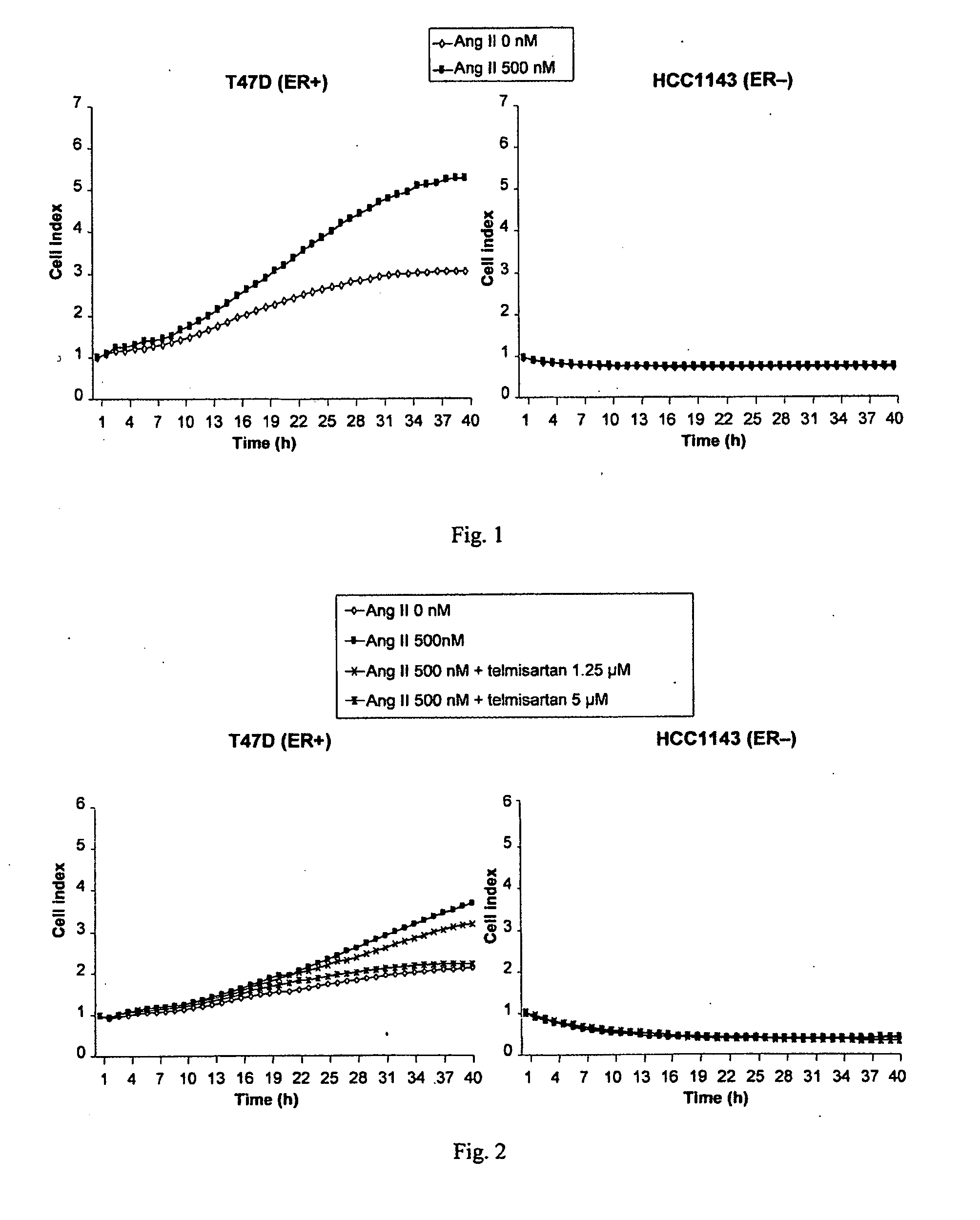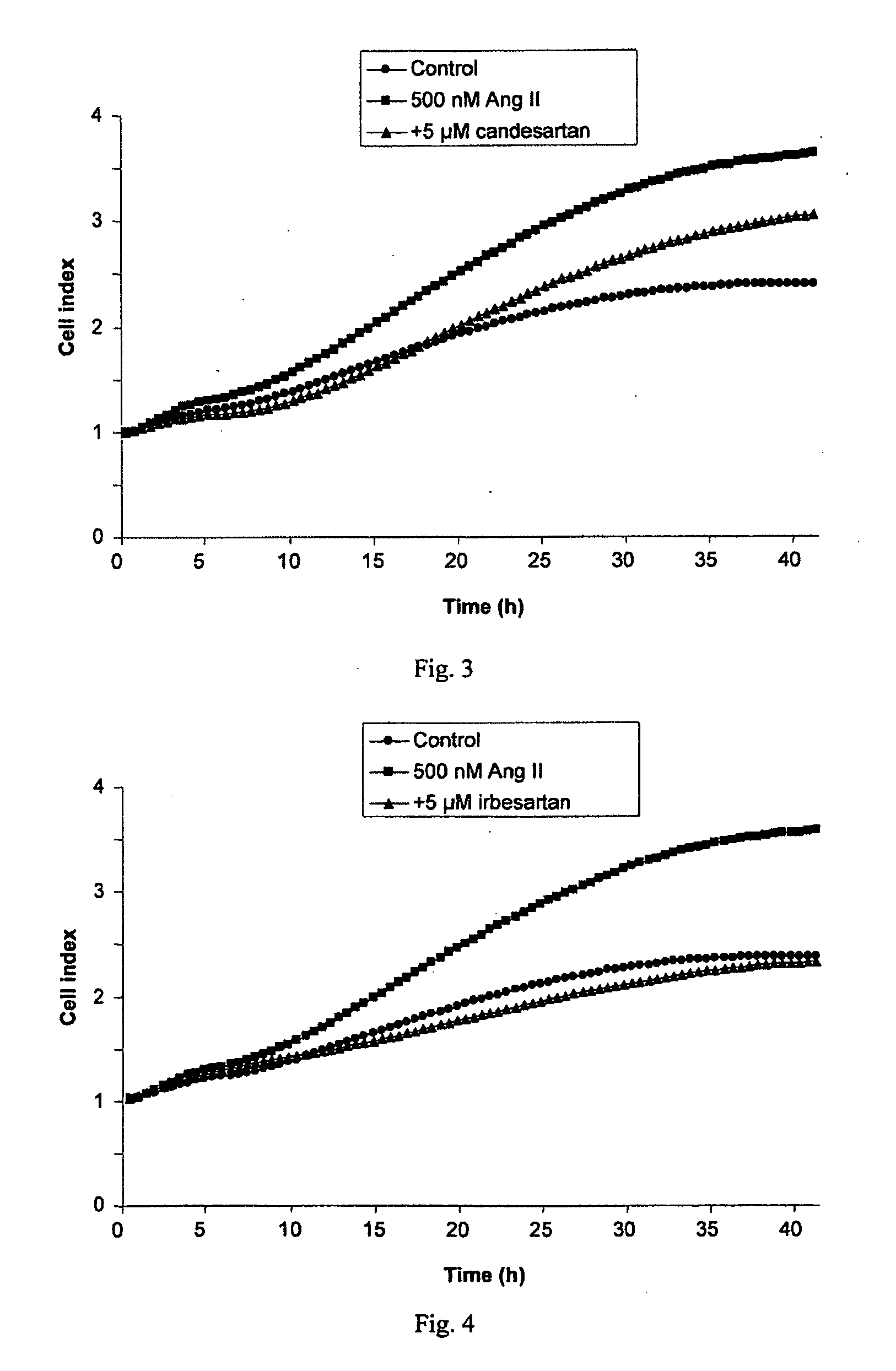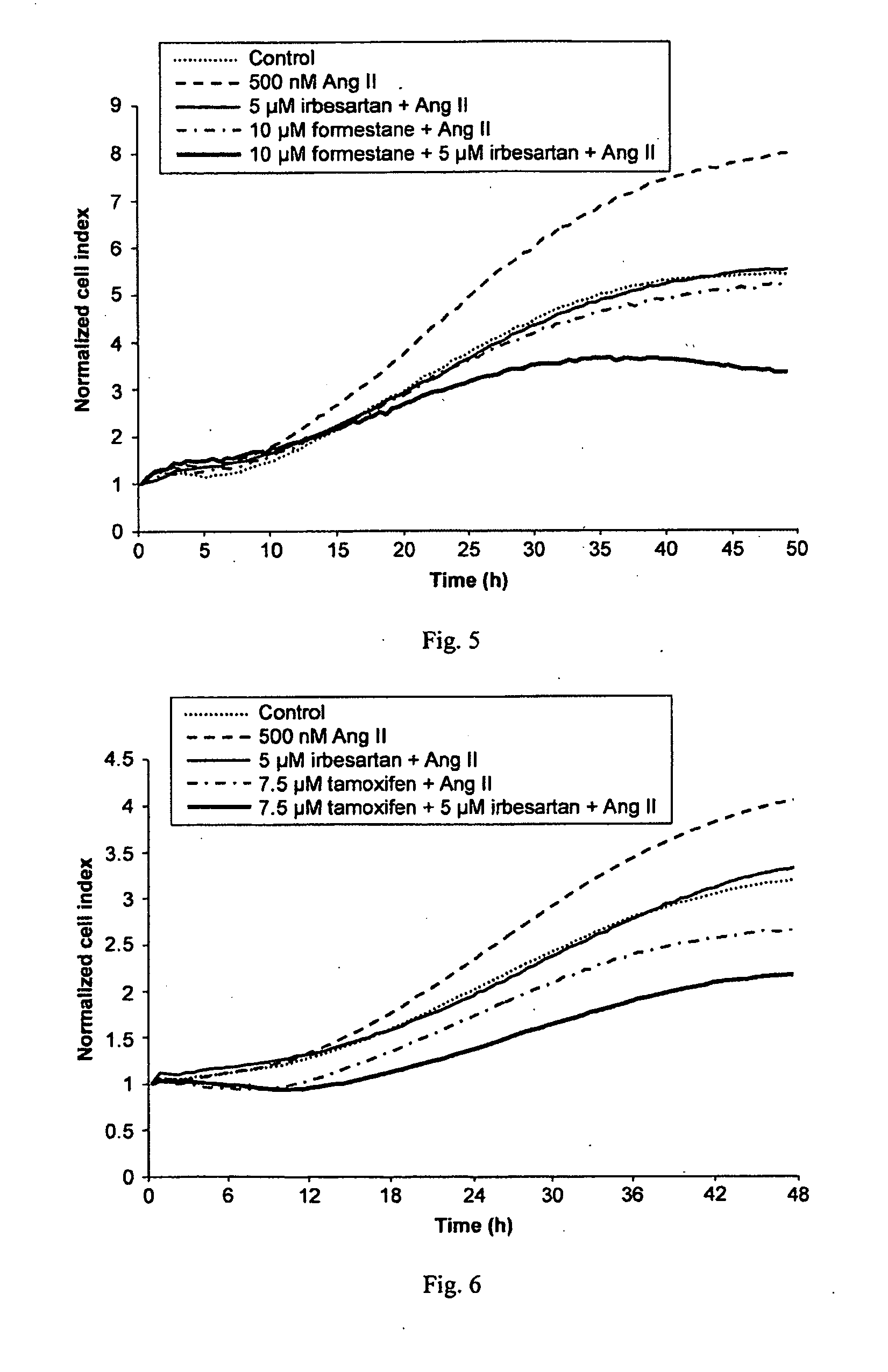Methods for breast cancer screening and treatment
a breast cancer and screening technology, applied in the field of breast cancer drugs, can solve the problems that the breast cancer drugs are not universally effective in preventing or treating breast cancer, and achieve the effects of reducing the growth, invasiveness, and/or metastasis of the tumor, reducing the growth, invasiveness, and/or metastasis of the breast tumor
- Summary
- Abstract
- Description
- Claims
- Application Information
AI Technical Summary
Benefits of technology
Problems solved by technology
Method used
Image
Examples
example 1
[0365]AT1 receptor mRNA expression was quantified in human tissues, using the BioExpress® System of Gene Logic Inc. This system includes mRNA expression data from about 18,000 samples, of which about 90% are from human tissues, comprising both normal and diseased samples from about 435 disease states. In brief, human tissue samples, either from surgical biopsy or post-mortem removal, were processed for mRNA expression profile analysis using Affymetrix GeneChips®. Each tissue sample was examined by a board-certified pathologist to confirm pathological diagnoses. RNA isolation, cDNA synthesis, cRNA amplification and labeling, hybridizations, and signal normalization were carried out using standard Affymetrix protocols. Computational analysis was performed using Genesis Enterprise System® Software and the Ascenta® software system (Gene Logic Inc).
[0366]AT1 receptor expression data from two probes based on different parts of the AT1 receptor nucleotide sequen...
example 2
Ang II-Induced Cell Proliferation
[0382]Various methods of measuring cell proliferation are described in the publications individually cited below and incorporated herein by reference.
[0383]Solly et al. (2004) Assay Drug Dev. Technol. 2(4):363-372.
[0384]Giaever & Keese (1984) Proc. Natl. Acad. Sci. 81(12):3761-3764.
[0385]Mitra et al. (1991) Biotechniques 11(4):504-510.
[0386]Xiao & Luong (2003) Biotechnol. Prog. 19(3):1000-1005.
[0387]Unless otherwise indicated, cell proliferation assays described in Examples 2-5 were performed using a Real-Time Cell Electronic Sensing (RT-CES™ 96X) instrument from ACEA Bioscience (San Diego, Calif.). This instrument utilizes an electronic readout (impedance) to non-invasively quantify adherent cell proliferation and viability in real time.
[0388]Cells were seeded in 96-well microtiter plates containing microelectronic sensor arrays (96E plates; ACEA). Cells were maintained in RPMI 1640 (Invitrogen, Carlsbad, Calif.) supplemented with 10% fetal bovine s...
example 3
Inhibition of Ang II-Induced Cell Proliferation by Telmisartan
[0392]A cell proliferation assay procedure was followed as described in Example 2. Following the 8 hour starvation phase, either Ang II (Sigma-Aldrich), 500 nM, with or without the AT1 receptor antagonist telmisartan, 1.25 μM or 5 μM, or vehicle control was added to the cell culture. The results, presented in FIG. 2, show that telmisartan significantly inhibited Ang II-induced growth of the ER+ cell line T47D in a concentration dependent manner. No effects of Ang II or telmisartan were seen in the ER− cell line HCC1143.
PUM
| Property | Measurement | Unit |
|---|---|---|
| Electrical resistance | aaaaa | aaaaa |
| Therapeutic | aaaaa | aaaaa |
| Responsivity | aaaaa | aaaaa |
Abstract
Description
Claims
Application Information
 Login to View More
Login to View More - R&D
- Intellectual Property
- Life Sciences
- Materials
- Tech Scout
- Unparalleled Data Quality
- Higher Quality Content
- 60% Fewer Hallucinations
Browse by: Latest US Patents, China's latest patents, Technical Efficacy Thesaurus, Application Domain, Technology Topic, Popular Technical Reports.
© 2025 PatSnap. All rights reserved.Legal|Privacy policy|Modern Slavery Act Transparency Statement|Sitemap|About US| Contact US: help@patsnap.com



